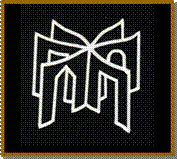Colloquial Castigation of the French, the Russians, the Spaniards and Napoleon in Arturo Pérez-Reverte’s La sombra del águila (1993) / Colloquial Castigation of the French, the Russians, the Spaniards and Napoleon in Arturo Pérez-Reverte’s...
Keywords:
Arturo Pérez Reverte, La sombra del águila, Uses of the colloquial language, Historical novel. / Arturo Pérez Reverte, Usos del lenguaje coloquial, Novela histórica.Abstract
Summary:
In 1812, a Spanish battalion is part of Napoleon‟s army invading Russia. In a major battle, when the Spaniards intend to surrender to the Russians, the French cavalry „saves‟ the Spaniards. The Spaniards abandon their original plan and re-engage on the French side. They perform superbly well. In October, Napoleon‟s Grande Armée begins the retreat and crosses the river Beresina in late November 1812. Eleven Spaniards enter Spain in April 1814. The narrator, speaking on behalf of the battalion, describes the French as „franchutes‟ and „gabachos‟. French commanders are mocked pitilessly. The Russian („ruski‟) artillery and Cossack cavalry fight well, though their commander is a disaster. The French consider the Spaniards to be patriotic, violent – and unfit for modern government. Napoleon is to the Spaniards „el Petit Cabrón‟, „el Petit‟, „el Enano‟, „el Ilustre‟ and „el Monstruo‟. Pérez-Reverte develops an impressive variety of pejorative designations for individuals and social groups. He also delivers a great many examples of familiar speech. In other texts and in La sombra del águila Pérez-Reverte displays profound knowledge and mastery of colloquial and vulgar speech.
Resumen:
En 1812, un batallón español forma parte del ejército napoleónico en la invasión de Rusia. Cuando en una batalla importante los españoles piensan rendirse a los rusos, la caballería francesa „salva‟ a los españoles. Los españoles abandonan el plan original y vuelven a combatir en nombre de los franceses. Su actuación militar es impecable. En octubre, la Grande Armée inicia el regreso y cruza el río Beresina hacia finales de noviembre de 1812. En abril de 1814 once españoles entran en España. El narrador, en nombre del batallón español, describe a los franceses como „franchutes‟ y „gabachos‟, burlándose despiadadamente de los jefes militares franceses. La artillería „ruski‟ y la caballería cosaca son buenos soldados, aunque su comandante es un desastre. Según los franceses, los españoles son patrióticos, violentos – e incapaces de comprender un sistema de gobierno moderno. Para los españoles Napoleón es „el Petit Cabrón‟, „el Petit‟, „el Enano‟, „el Ilustre‟ y „el Monstruo‟. Pérez-Reverte desarrolla una variedad impresionante de términos peyorativos para los individuos y los grupos sociales. También presenta muchísimos ejemplos del lenguaje familiar. En otros textos y aquí en La sombra del águila Pérez-Reverte revela unos conocimientos increíbles y una maestría del lenguaje coloquial y vulgar.
References
Pérez-Reverte, Arturo. La sombra del águila, Ediciones Santillana, Madrid, 1993.
Pérez-Reverte, Arturo. La sombra del águila, séptima edición, Santillana-Punto de lectura, Madrid, 2004.
Pérez-Reverte, Arturo. Text available on Internet requesting „El habla de un bravo del siglo XVII‟ or at
www.perezreverte.com/upload/ficheros/noticias/201002/discurso_rae.pdf
Downloads
Published
Issue
Section
License

Tejuelo is published with license Creative Commons Reconocimiento-NoComercial-SinObraDerivada 3.0 España.


.jpg)



